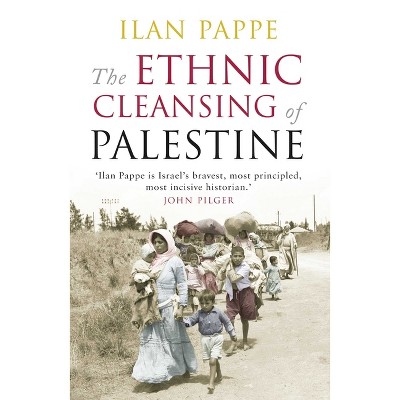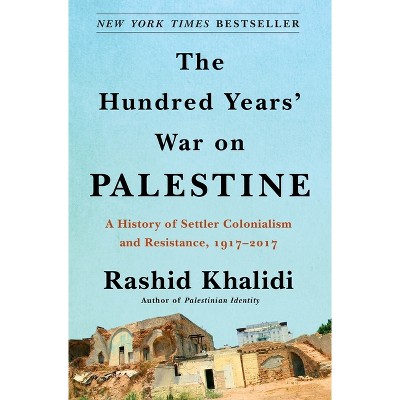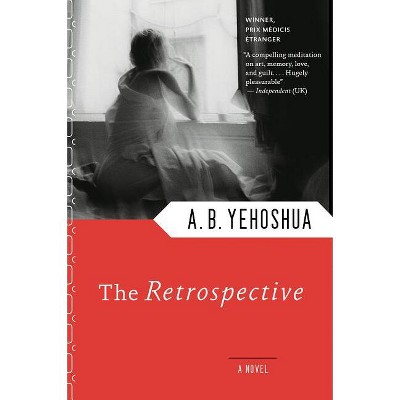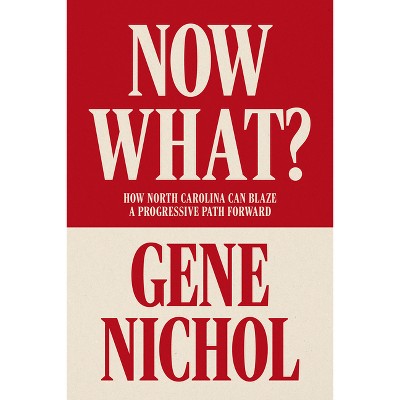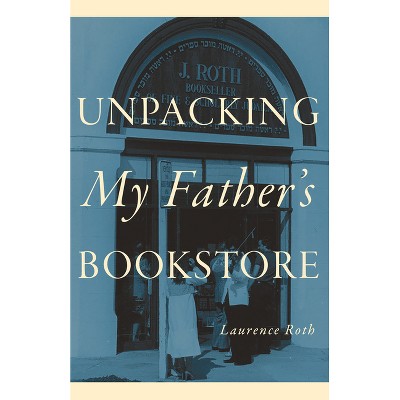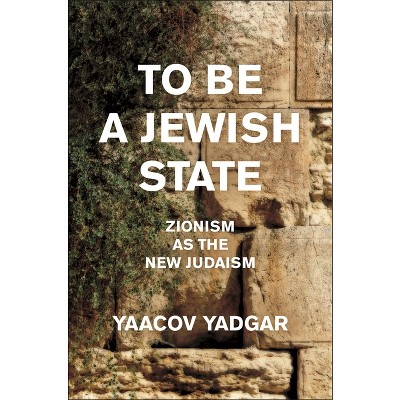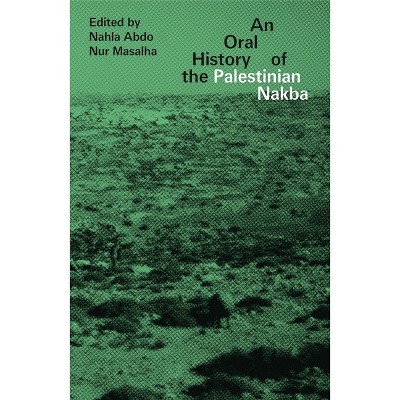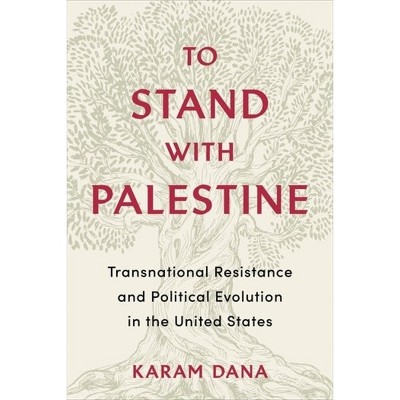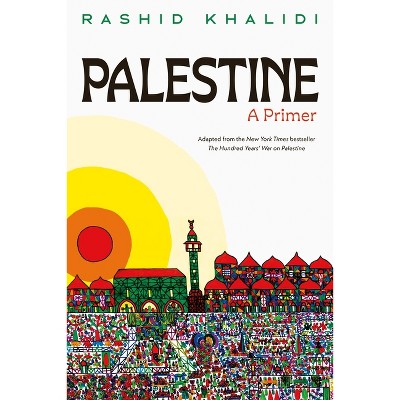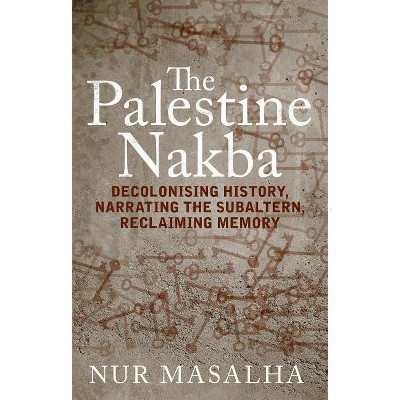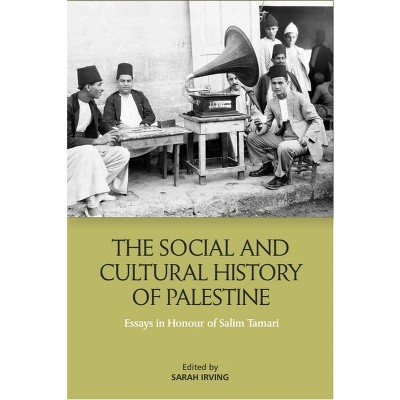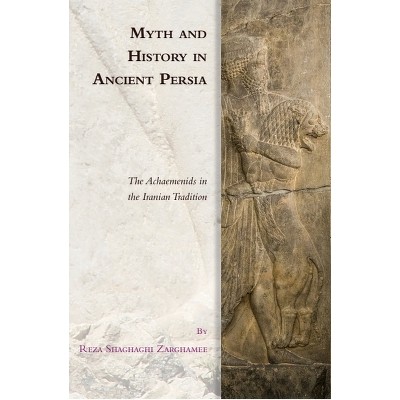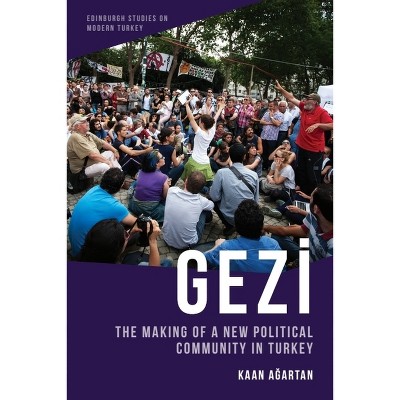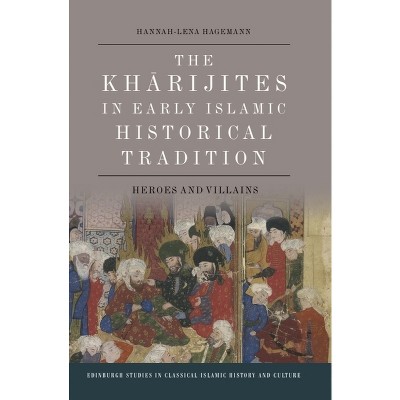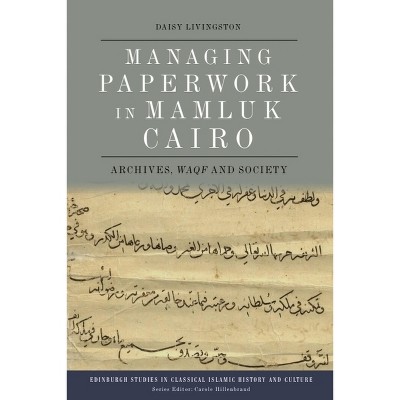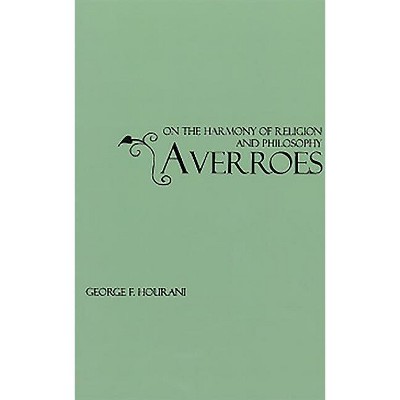Sponsored

Being Palestinian - by Yasir Suleiman (Paperback)
Out of Stock
Sponsored
About this item
Highlights
- What does it means to be Palestinian in the diaspora?This collection of 100 personal reflections on being Palestinian is the first book of its kind.
- About the Author: Professor Yasir Suleiman is the first holder of His Majesty Sultan Qaboos Bin Sa'id Chair of Modern Arabic Studies and a Fellow of King's College, Cambridge.
- 384 Pages
- History, Middle East
Description
About the Book
The first book of its kind, Being Palestinian draws together the voices of 102 well-known academics, poets, writers, faith leaders and singers, alongside ordinary Palestinians in North America and the United Kingdom, to explore in heartfelt personal reflections what it means to be Palestinian in diaspora.
Book Synopsis
What does it means to be Palestinian in the diaspora?This collection of 100 personal reflections on being Palestinian is the first book of its kind. Reflecting on Palestinian identity as it is experienced at the individual level, issues of identity, exile, refugee status, nostalgia, belonging and alienation are at the heart of the book. The contributors speak in many voices, exploring the richness and diversity of identity construction among Palestinians in the diaspora.Included are contributions from Palestinians living in the Anglo-Saxon diaspora, mainly the UK and North America. They come from a variety of professional backgrounds: business people, lawyers, judges, fiction writers, poets, journalists (press, TV and radio), film-makers, diplomats and academics. Men and women, young and old, Christians and Muslims offer essays, as do Palestinians from different generations (first, second and third generations). This mix of professional, gender, faith and generational categories ensures that a variety of voices are heard.The editor sets the scene with an Introduction, and his Epilogue deals with issues of identity, exile and diaspora as concepts that give sense to the personal reflections.Key FeaturesThe first book to gather personal reflections on what it means to be PalestinianContributes to the debate on what it means to be PalestinianAsks what the diaspora is for PalestiniansLooks at how being Palestinian varies across gender, generation, religious affiliation and professional interest.
FROM APF:
Is being Palestinian a 'pain in the neck', or a 'sentence to suffer gladly'? Does Palestinian identity reside in cross-stitch embroidery, sweet knafeh and the poetry of Mahmoud Darwish, or defending the rights of oppressed communities around the world? Does being Palestinian in diaspora mean anything at all?
In this ground-breaking volume, the first of its kind, 102 contributors from North America and the United Kingdom reflect in their own words on what it means to be Palestinian in diaspora. Exploring how Palestine is both lost and found, bereaved and celebrated in diaspora, and the tangled ties between 'home' and 'homeland', Being Palestinian takes the reader on an intimate journey into the diaspora to reveal a human story: how does it feel when you cannot find Palestine under 'P' in the encyclopaedia your father brings home? Why grow fig and orange trees in the Arizona desert? What does it mean to know every inch of a village that no longer exists?
Touching, troubling but full of character and wit, the reflections in Being Palestinian offer a radically fresh look at the modern Palestinian experience in the West.
From the Back Cover
'These thoughtful, poignant reflections bring forth vividly some of the human dimensions of one of the great tragedies of current history, the forced dispossession of Palestinians from their homeland.' Noam Chomsky 'This handsome collection speaks in a multiplicity of voices and textures that capture the enduring presence of the homeland in every Diasporic home. Palestinians and non-Palestinians will be moved by it in equal measure.' Azmi Bishara How does it feel when you cannot find Palestine under 'P' in the encyclopaedia your father brings home? Why cultivate fig and orange trees in the Arizona desert? What does it mean to know every inch of a village you have never seen, a village that no longer exists? In this groundbreaking volume, 102 Palestinians in North America and the United Kingdom reflect in their own words on what it means to be Palestinian in the diaspora. Men and women, young and old, Christians and Muslims, including well-known academics, poets, writers, faith leaders and singers, reveal their tangled ties to 'home' and 'homeland', exploring how Palestine in the diaspora can be both lost and found, bereaved and celebrated, lived and longed-for. Touching, often troubling, but full of character and wit, the reflections in Being Palestinian offer a radically fresh look at the modern Palestinian experience in the West. And the time-honoured issues of identity, exile and diaspora give acute sense to these very personal reflections. Yasir Suleiman is His Majesty Sultan Qaboos Bin Sa'id Chair of Modern Arabic Studies and a Fellow of King's College, Cambridge. His many published works include Arabic in the Fray: Ideology and Cultural Politics (2013), Arabic Self and Identity: A Study in Conflict and Displacement (2011), A War of Words: Language and Conflict in the Middle East (2004) and The Arabic Language and National Identity: A Study in Ideology (2003). Cover image: Sinan Malley (c) Kate Robertson. Jerusalem Old City and The Noble Sanctuary (c) Rostislav Ageev/shutterstock.com, Edinburgh city skyline from Calton Hill (c) David Bostock/shutterstock.com Cover design: Kit Foster. Design concept by Yasir SuleimanReview Quotes
'Diaspora is linked to displacement but is not synonymous with it, not least because displaced people may re-root themselves in new places. In this volume, Diaspora comes into being in the maintenance of personal and collective roots to an Original place of return. This handsome collection of essays speaks in a multiplicity of voices and textures that capture the enduring presence of the homeland in every Diasporic home. Palestinians and non-Palestinians will be moved by it in equal measure.'-- "Azmi Bishara, Arab Centre for Research and Policy Studies, Doha, Qatar"
'In diaspora, in Shatat, at home in exile, in historic Palestine, in refugee camps, scattered in every continent on the globe, gathered around their common cause, Palestinians are the masters of their own destiny, authors of their own lives, a nation by virtue of not just their ancestral homeland but also by a sustained history of struggle against the occupation and theft of their country. Yasir Suleiman's magnificent volume, Being Palestinian, gathers a number of brilliant essays reflecting on what it means to be a Palestinian. The result is an uncommon constellation of insights by some of the brightest Palestinian minds on the open-ended nature of identities and alterities we inhabit and invent as we go through a life dignified by a noble cause. A tour de force and a must read!'--Hagop Kevorkian Professor of Iranian Studies and Comparative Literature, Columbia University "Hamid Dabashi"
'The book's breadth of scope, lucidity of narrative, and mixture of literary registers make it stand out within the rich literature on the subject as a unique multiauthor Palestinian book of genesis/exodus.'--Ahman Diab "Journal of Palestine Studies"
'These thoughtful, poignant reflections bring forth vividly some of the human dimensions of one of the great tragedies of current history, the forced dispossession of Palestinians from their homeland. They bring to mind experiences in a miserable refugee camp in Lebanon, where I was invited to the "home" - a room - of a family expelled from the Galilee, who showed me their treasures - a photograph, the key to their destroyed home, other cherished mementos of a life stolen from them for which they yearn.'-- "Noam Chomsky"
'This combination of haunting and elegant prose, gifted metaphor for unutterable loss, the rhythm of dispossession and dislocation, and triumphant love of life can only be Palestinian. What a remarkable collection of luminous essays, these stories inform and attach the reader to Palestine and her people more than a shelf of books on the 'Arab-Israeli conflict'.'-- "Karma Nabulsi, University of Oxford"
A remarkable collection of poignant reflections on identity, Diaspora, and personal history.--Roberto Bonazzi "Express-News"
Editor Suleiman, himself a Palestinian, is to be congratulated on this volume of personal reflections collected from Palestinians in the shatat (the diaspora), for the use of all those who may be curious and interested to learn more about his people who, in the West especially, are unfairly maligned by their enemies.--Issa J. Boullata, McGill University, Montreal "World Literature in Review"
Many of the authors describe their relationship with Palestine as complicated and ever-evolving, changing as the author transitions from childhood into adulthood. Yet, in spite of, or possibly because of, the associated hardships, each essay expresses pride in the author's Palestinian identity. Readers will walk away with a better understanding of the fascinating shades of identity issues facing members of the diaspora, as the feeling of not belonging is a universal experience, perhaps an identity in itself.'--Ravenel Godbold "This Week in Palestine"
This book will reward any reader who decides to choose a chapter at random, or read every single account. These are the kind of illuminating personal histories for which daily journalism only rarely has the space, and yet they are engaging and a vital aid to understanding the complexities of the conflict.--James Rodgers "reportingconflict"
About the Author
Professor Yasir Suleiman is the first holder of His Majesty Sultan Qaboos Bin Sa'id Chair of Modern Arabic Studies and a Fellow of King's College, Cambridge. His many published works include A War of Words: Language and Conflict in the Middle East (2004), The Arabic Language and National Identity: A Study in Ideology (2003), The Arabic Grammatical Tradition: A Study in Tal'liil(1999), Literature and Nation in the Middle East (edited with Ibrahim Muhawi, 2006), Language and Society in the Middle East and North Africa (editor, 1999), Arabic Grammar and Linguistics (editor, 1998), Language and Identity in the Middle East and North Africa (editor, 1996) and Arabic Sociolinguistics: Issues and Perspectives (editor, 1994).
Shipping details
Return details
Frequently bought together

Guests also viewed
